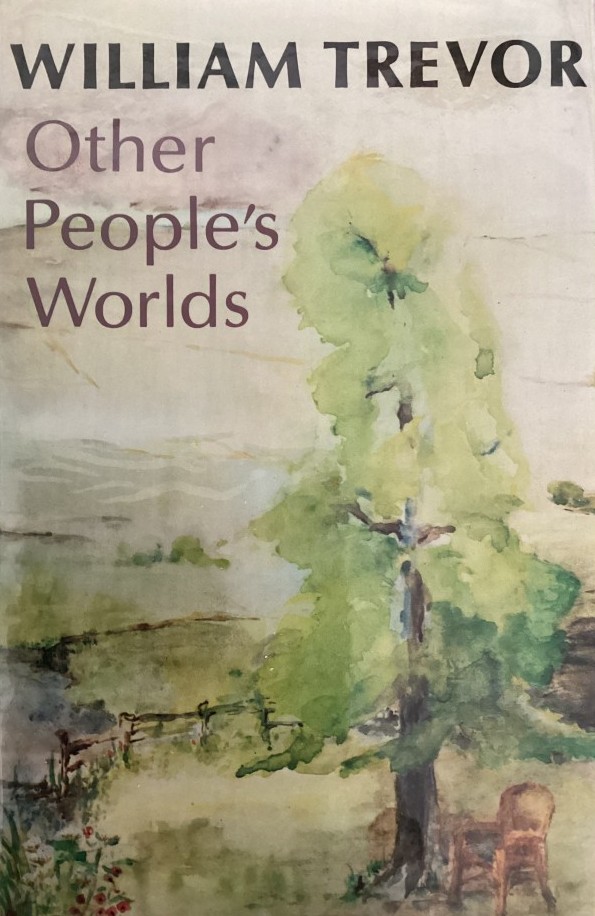Inspiring Older Readers
 posted on 17 Mar 2024
posted on 17 Mar 2024
Other People’s Worlds by William Trevor
William Trevor is a cunning old fox of a writer. The seemingly effortless, unhurried prose throws an arm around your shoulder and takes you off for a gentle stroll in the countryside while the author whispers his story in your ear. It’s not until much later, when its too late to turn back, that you discover you’d been led down the garden path to some dark place where the early sunlight has evaporated and a dank and dangerous smell fills the air.
So it is with Other People’s Worlds – a stone cold William Trevor classic. Julia Ferndale, middle-aged, widowed with two grown children and living with her mother – Mrs Anstey – is a mild, unassuming, still attractive, religiously inclined suburbanite. In the early pages of the novel, which feel almost light and frothy, we discover Julia has unexpectedly fallen for a charming bit-part actor, Francis Tyte, younger than her, who she plans to marry.
What she, and we, don’t know at this point is that Tyte is an unstable, self-serving and dangerous fantasist who will add Julia to the casualties of the wreckage he causes wherever he goes. Trevor progresses the story by switching our focus from character to character with each new chapter and allowing them to add to and progress the story – thereby allowing us to enter, as in the title of the book, other people’s worlds.
A story that starts as a pastoral quickly takes on an almost hellish landscape as we find ourselves visiting Francis Tyte’s world. In the rubble of his past there’s an elderly wife he married in the hope that she would die quickly and leave him a fortune. She doesn’t. Then there’s there’s a shop assistant ex-girlfriend with whom he has a child and they will both come to play an increasing role in the spiral of destruction Tyte has set in motion. And now there’s Julia who Tyte has decided he must marry to get his hands on her jewels – in his mind this is finally the chance of the big pay-off he deserves that will set him up with a new life in Germany.
By the end of the novel we have a series of psychological portraits that make what might have seemed a slight story of a crooked fantasist into something much more significant and substantial. Inevitably you’ll find yourself both fascinated and repelled by Tyte and I couldn’t stop thinking about how close in spirit Trevor’s portrait of the man was to Graham Greene’s Pinkie Brown in Brighton Rock.
The different worlds Trevor creates intertwine in rich and disturbing ways and I’ve deliberately not detailed any of this because it would be sure to spoil your enjoyment of how the master storyteller unwinds his tale. In trying to give you a flavour of where the novel takes us I can’t do better than to turn to the book jacket of the first edition which has this comment on the flyleaf:
“In the end we are left to ponder disturbing questions about the nature of victims and the nature of predators – perhaps, above all, the question of whether Julia is a near-saint or a foolish woman. One thing only is certain: she cannot be said to have been defeated.”
Paperback copies of the book can be found reasonably easily and won’t cost a fortune – the hardback first edition, however, does come at a premium price.
Terry Potter
March 2024